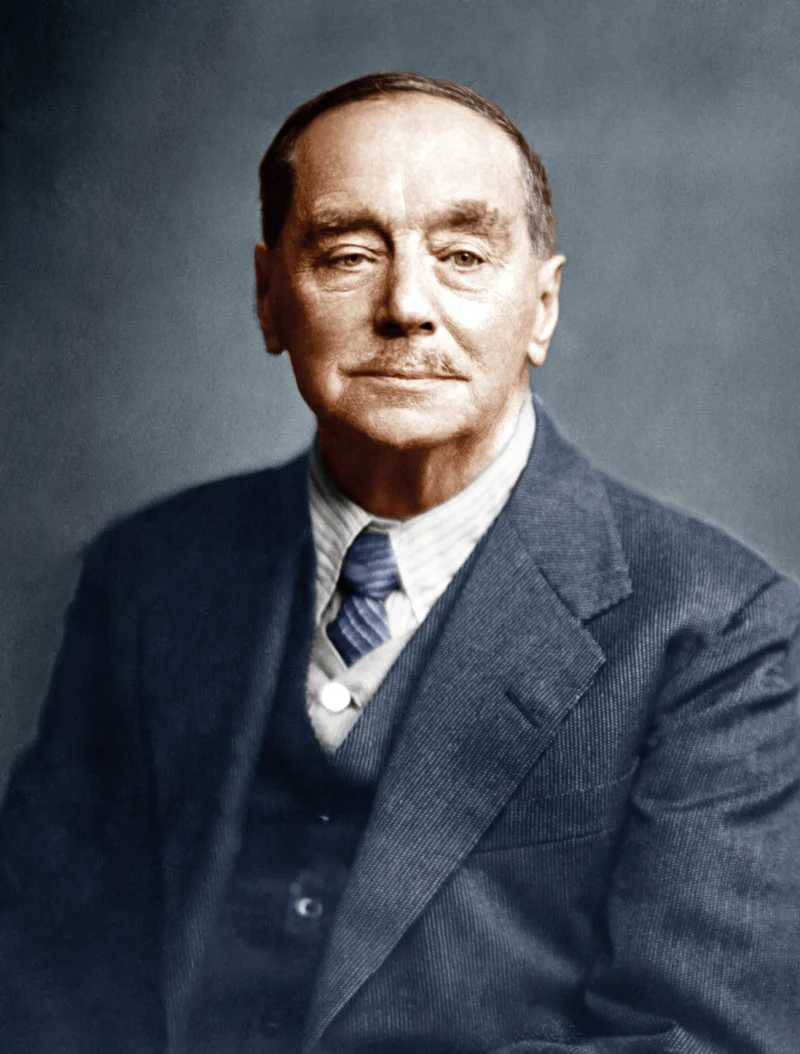Short Summary
H.G. Wells was a prominent English writer, best known for his pioneering works in science fiction, including classics such as "The War of the Worlds" and "The Time Machine." His writings explored themes of futuristic technology, social change, and the human condition. Wells' imaginative storytelling and forward-thinking ideas earned him a place as one of the founding figures of modern science fiction. Beyond his literary contributions, he was an influential social commentator and advocate for progressive causes.
Early Life & Education
Herbert George Wells was born on September 21, 1866, in Bromley, Kent, England, to a working-class family. His father was a professional cricketer and shopkeeper, while his mother worked as a domestic servant. Despite financial hardships, Wells' parents prioritized education, which sparked his love for reading and learning. After winning a scholarship, he attended Thomas Morley's Commercial Academy and later the Normal School of Science in London, where he studied biology under Thomas Henry Huxley. This scientific education deeply influenced his later work, fostering his interest in the possibilities of future technologies and societies.
Career Highlights
Wells began his career as a teacher and later transitioned to writing full-time, publishing his first novel, "The Time Machine," in 1895. This was followed by other seminal works, including "The Invisible Man" and "The War of the Worlds," which established him as a master of science fiction. Throughout his career, he wrote over fifty novels and numerous short stories, essays, and non-fiction works. Beyond fiction, he was a devoted social critic, advocating for social reform, education, and the potential of science to improve society. His works not only entertained but also provoked thought and discussion on societal issues.
Major Achievements
- Published "The Time Machine," introducing the concept of time travel in literature.
- Authored "The War of the Worlds," a pioneering work of alien invasion fiction.
- Produced influential essays on social and scientific topics, impacting public discourse.
- Received nominations for the Nobel Prize in Literature four times.
- Contributed to the formation of the League of Nations through his advocacy for global peace.
Famous Quotes
- "Adapt or perish, now as ever, is nature's inexorable imperative."
- "Human history becomes more and more a race between education and catastrophe."
- "If you fell down yesterday, stand up today."
Interesting Facts
- Wells was a trained biologist and applied scientific principles to his writing.
- He was an early advocate for human rights and supported women's suffrage.
- His works have been adapted into numerous films, radio dramas, and television series.
- Wells was friends with notable figures like Winston Churchill and Joseph Conrad.
- He predicted the creation of the atomic bomb in his 1914 novel "The World Set Free."
Legacy / Influence
H.G. Wells' legacy endures through his contributions to literature and his visionary ideas about the future. His works laid the groundwork for modern science fiction, inspiring countless writers and filmmakers. Beyond literature, his advocacy for social reform and education left a lasting impact on society, promoting the importance of scientific progress and global cooperation. His imaginative storytelling continues to captivate audiences worldwide, ensuring his place as a literary and intellectual giant.
FAQ
Q: Why is H.G. Wells famous?
A: He is famous for his pioneering works in science fiction and his influence as a social commentator.
Q: What are some of his most famous books?
A: "The Time Machine," "The War of the Worlds," and "The Invisible Man" are among his most renowned works.
Q: Did H.G. Wells win any literary awards?
A: While he never won, he was nominated for the Nobel Prize in Literature four times.
Q: How did his education influence his writing?
A: His scientific education under T.H. Huxley influenced his interest in futuristic technology and societal themes in his works.








